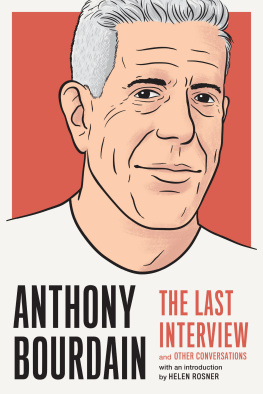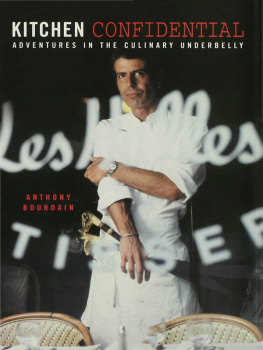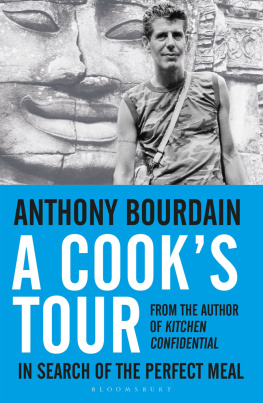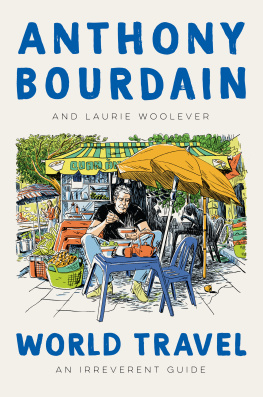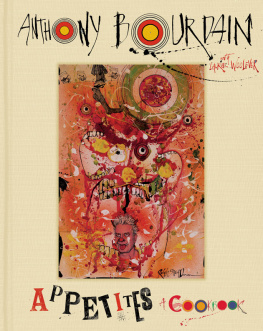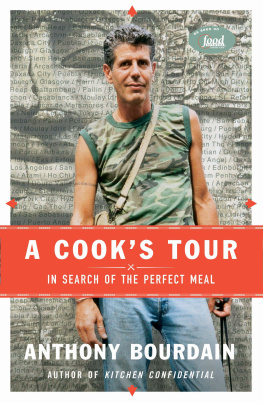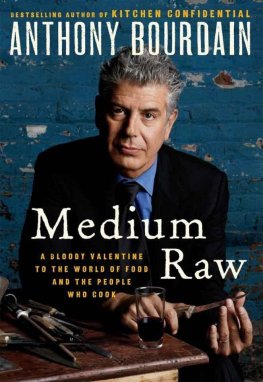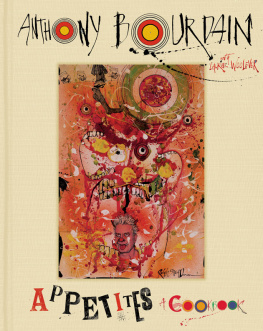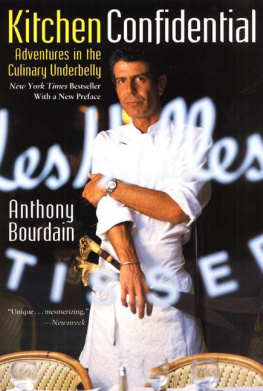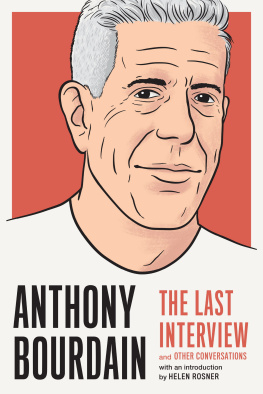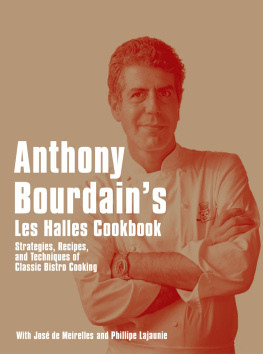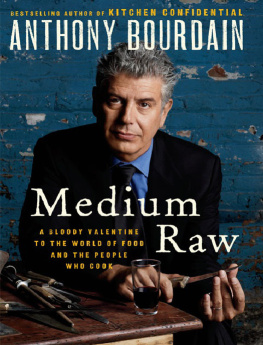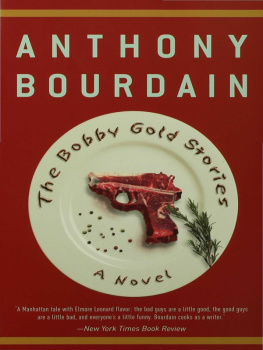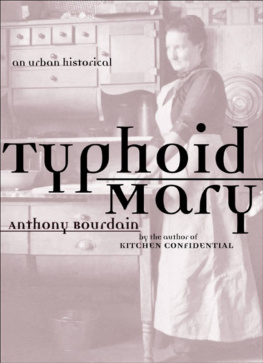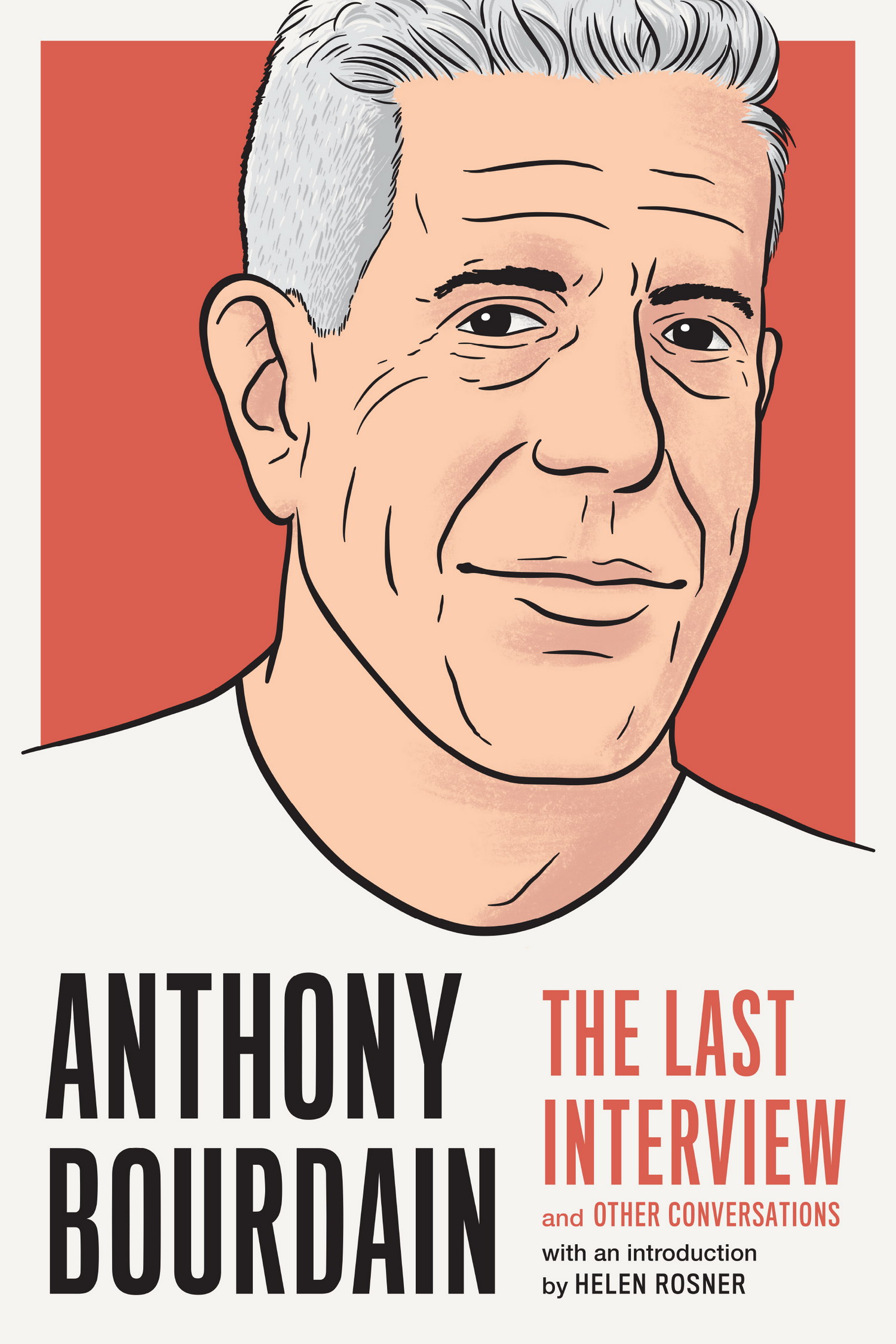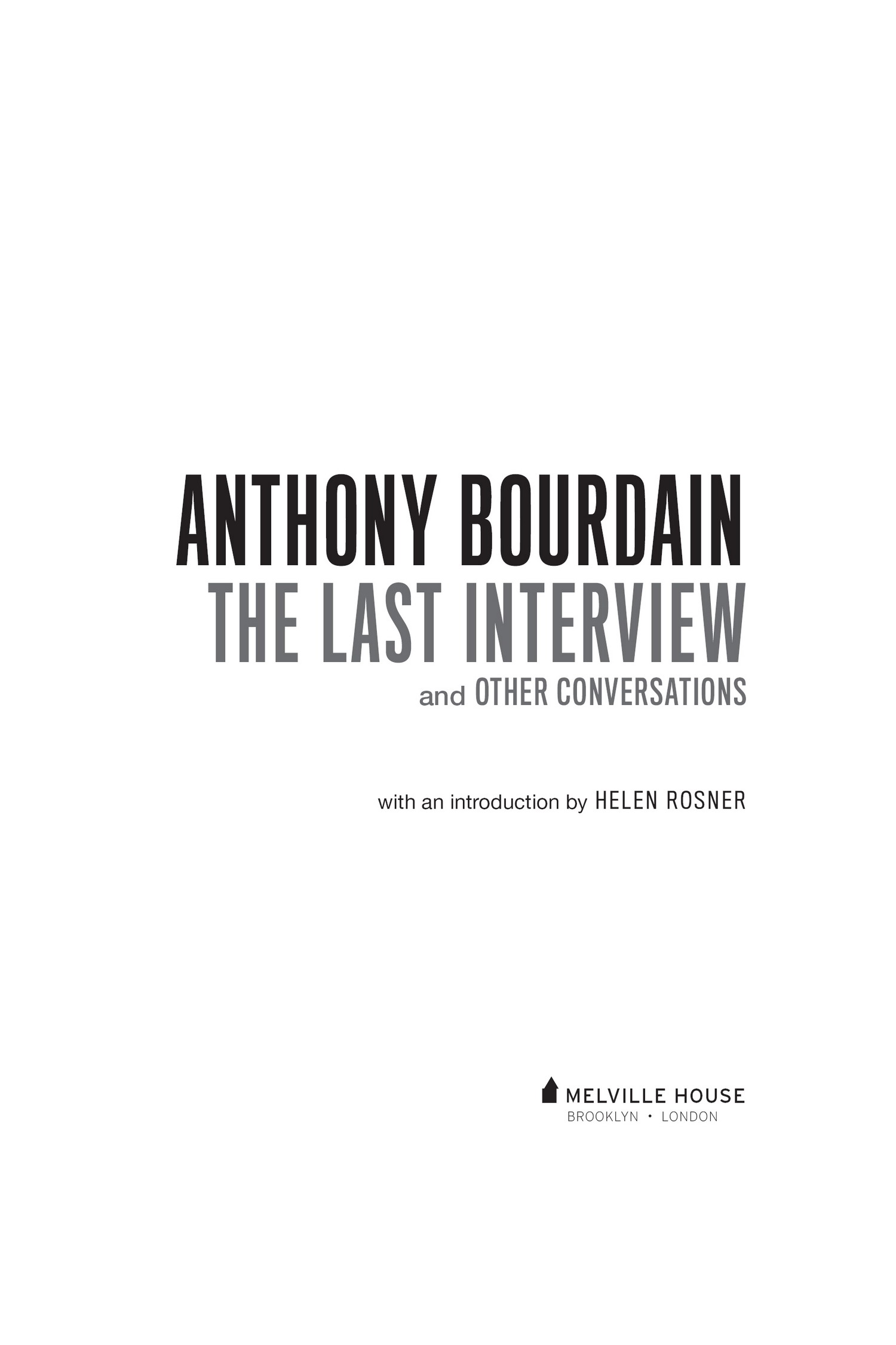Interview with John W. Little
INTRODUCTION
HELEN ROSNER
Right after high school, I spent an entire summer staring at Anthony Bourdains face. After graduation, I had wrangled a job at the Seminary Co-op Bookstore in Chicago, where I spent thirty hours a week ringing up customers at a hiccupy, green-screen register terminal. For me, the summer was a prairie stretching out into hazy infinity; I was leaving for college at the end of it, but ten weeks may as well have been a hundred years. The bookstore was serious and scholarly, independent but affiliated with a major university, and it was strictly stocked: no kids books, no cookbooks, no travel, no genre fiction. Our inventorys few concessions to a buyers impulse to make impulse buys lived by the register, piled in a few short stacks, their spines becoming as familiar to me as the back of a crushs neck. I dont know how trustworthy my memory is anymore, but I remember ringing up a copy of Kitchen Confidential, Bourdains just-published memoir and that summers runaway hit, every fourth or fifth customerlocking eyes a half a dozen times an hour with the white-clad, knife-holding author on the cover, his sharp cheeks and pursed lips framing a Mona Lisa glare.
Store employees werent technically supposed to read on the job, but what else was there to do? I worked my way through Bourdains book in bites and gulps over the course of a week, reading half a chapter until a customer arrived, then selling them the copy in my hand. Did reading Kitchen Confidential change my life? Hard to say. I was nineteen, soft-handed, drowning in my own wishes and terrors, a kitten with its eyes still closed. What could I have believed about fancy restaurants, that this book upended my notions of their sanctity? What could I have known about food writing that it shattered my sense of its limits?
The book did, of course, change everythingfor restaurant-goers and for writers, and most powerfully, for cooks, who were, in a single instant, as if from on high, delivered a spokesman, and champion, and poet laureate. It also explosively changed everything for Bourdain himself. He was 44 years old when Kitchen Confidential was published, and he thought of this memoir as an endcap to his career: a way to stuff and mount those bone-splintering years spent working the line, wringing some value (literary, monetary) from his lost years, his time as a junkie and then getting clean, the splendor and indignity of a cooks jagged life. The books more practical secret-spilling quickly took on the patina of conventional wisdomeveryone, it seems, now knows not to order fish on Mondays, and to steer clear of the refrigerator dumping ground of an off-menu frittata special, even if they dont always know where that knowledge came from.
Readers may have bought the book to get insight into a world ten feet from their dinner table, but it was Bourdain the man who kept us readingthe character on the page, the voice recounting the story. To me, a teenager in a half-slouch behind the counter at the bookstore, each page was an astonishment: raunchy and vicious and wild, all of it in prose sharp as a scimitar. Bourdain is best known, now, for his extraordinary television career, and hes most often categorized as a cook, but to me hes always a writerhes the author of some dozen books, and uncountable essays and blog posts and show notesand Kitchen Confidential is the knuckle-crack of a fighter getting ready to wallop. I still catch my breath reading his description of the palms of a fearsome chef, a line that wouldnt be out of place in Moby-Dick: The hideous constellation of water-filled blisters, angry red welts from grill marks, the old scars, the raw flesh where steam or hot fat had made the skin simply roll off.
Despite my love affair with Kitchen Confidential, I didnt read another Bourdain book until around 2014, after deciding that I probably ought to understand why this Bourdain guy was still such a big deal. Like most former teenaged bookstore employees, Id figured that one day Id end up being a writer, but it had been something of a surprise that Id ended up writing about food and restaurants. Still, some contrary impulse in me refused to engage even a little with Bourdains career, assumingbased on his omnipresence, his tremendous success, and his universal belovedness, not to mention that he was all anyone talked about when we talked, endlessly, about bad-boy tattooed chefs and their rock-star livesthat he was probably an overrated hack.
I started with Medium Raw, the putative sequel to Kitchen Confidential, published ten years later and being, more or less, a meditation on the wild fame that followed the first books publication. He had me from the first line: I was so supremely naive about so many things when I wrote Kitchen Confidential, the book begins, then runs in a stream of consciousness from chapter to chapter: marveling at the absurdities of private air travel, eviscerating the sanctimony of Alice Waters, exploring the strange sensuality of writing about food, grappling with his conflicting feelings about still being called chef despite not, technically speaking, being the chief of anyone anymore. He writes about being recognized by a young cook at a bar: Fuck you, he says. You dont even cook. Youre not one of us anymore. Far from being offended (though I am hurt), I want to give him a big hug. Another drink or two, and I just might.

